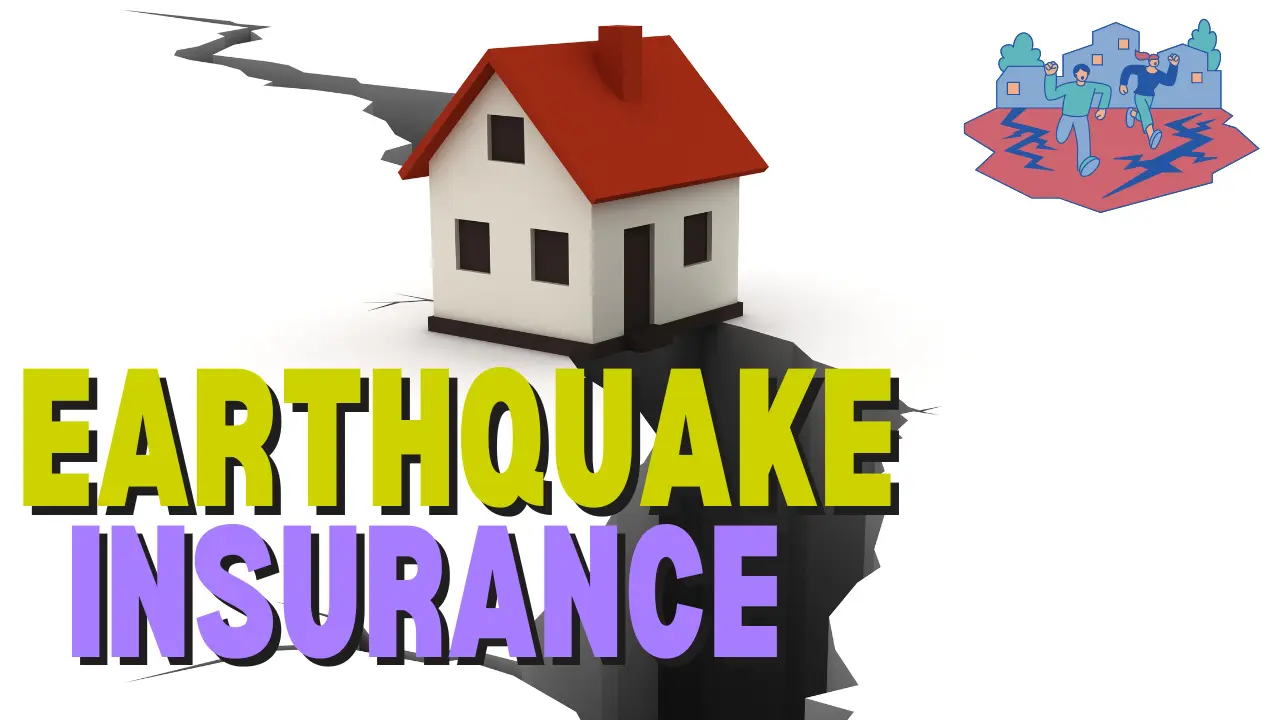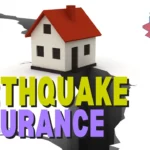Earthquake Insurance: The Ultimate Home Protection Manual: Everything You Need to Know About Protecting Your Private Home and Assets
One type of herbal failure is the earthquake which is unpredictable and has the potential to destroy a lot of structures including houses and infrastructure. Most of the time, owners are faced with severe financial loss when an earthquake occurs which is why earthquake insurance is necessary because the people who live in a high-hazard area will be affected. But specifically what is earthquake insurance, and do you want it? Below I explain all you need to know, including what this guide includes, the amount of money it costs, and whether it is worth it to your home.
What Is Earthquake Insurance?
Earthquake insurance is a specialized sort of belongings coverage that covers damage resulting from earthquakes. Whilst standard houseowners insurance protects against common dangers like hearth, theft, and sure herbal screw-ups, it commonly does no longer cowl harm from earthquakes. It truly is in which earthquake coverage comes in—it fills the coverage gap, presenting monetary protection for your house and property if an earthquake takes place.
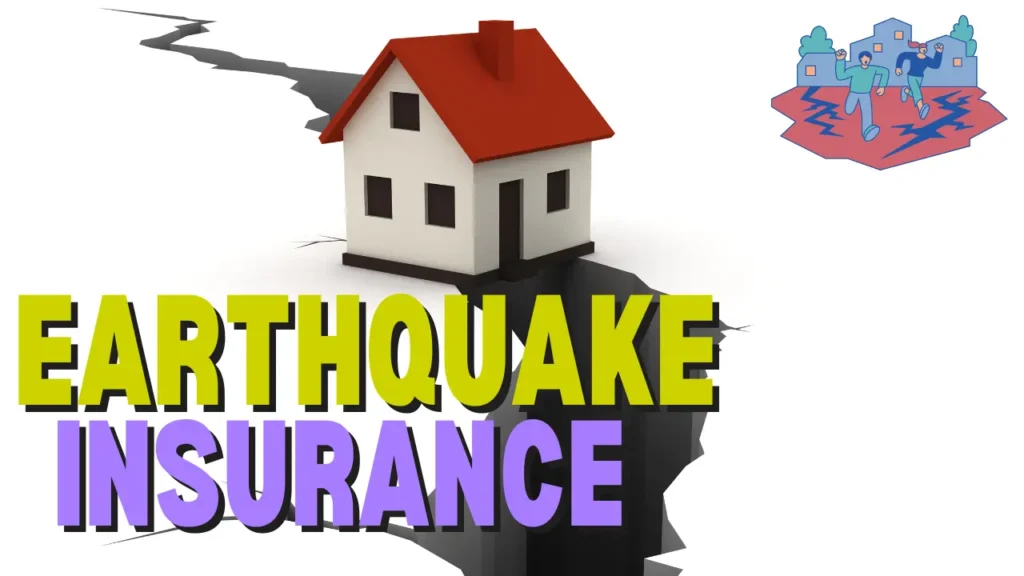
How Earthquake Insurance Works
In the event of an earthquake, earthquake insurance can help cover the cost of repairing or rebuilding your property, replacing personal belongings, or even buying transient housing if your home is uninhabitable. Guidelines commonly have high deductibles, however, the economic alleviation they provide after a prime quake may be massive.
Would You Like To Have Earthquake Insurance?
What to Look for in Earthquake Insurance
Whether or not an insured wants coverage for earthquakes depends mainly on the extent of the area and the likelihood of experiencing an earthquake. In addition, for anyone who resides in high-risk regions such as California, Washington, and Alaska, earthquake insurance is worthwhile. However one should compare his or her need for this insurance since even the lower-risk areas can be affected by earthquakes.
Even More Important Is The Coverage Of The Earthquake.
Dwelling in a high-chance area: if the area that you are residing in is prone to earthquakes then having an earthquake insurance may be essential. Aftermath costs of fixing damages from an earthquake can at times be highly expensive for an individual if they are not insured.
Having a loan: some lenders may additionally require house owners to have earthquake insurance, specifically if they stay in an excessively chanced place.
Home creation: houses built on volatile ground or with less earthquake-resistant substances are at greater hazard of harm.
High-chance earthquake zones within the U.S.
Sure areas of the United States are more prone to seismic activity than others. Here’s a look at the areas most at hazard:
West Coast States
California:
Regarded for its fault lines, consisting of the San Andreas fault, California is one of the most earthquake-inclined states. Earthquake coverage is enormously encouraged for homeowners here.
Washington & Oregon:
These states additionally sit along sizable fault lines and experience common seismic activity, making earthquake insurance sensible funding.
Other fantastic zones
Alaska:
This kingdom reviews more earthquakes than another U.S. Kingdom. Although it’s less populated, earthquake coverage is vital for owners in this region.
Midwest & East Coast: even though much less frequent, quakes do occur in states like Missouri (because of the new Madrid seismic area) and South Carolina. House owners in these regions should still not forget insurance.
What Does Earthquake Coverage Cowl?
Earthquake insurance commonly covers three essential things:
1. Structural Damage
This includes the fee to restore or rebuild your home if it’s damaged by an earthquake. The structure of the residence—its partitions, roof, basis, and any connected systems like garages—is protected underneath this part of the coverage.
2. Private Property
Similarly to structural harm, earthquake insurance covers private assets inside your home, consisting of furniture, electronics, and clothing. Regulations usually have limits on how much they’ll pay for personal items, so it is critical to check your coverage and alter it as wished.
3. Extra Living Charges (Ale)
If your home is just too damaged to stay in after an earthquake, ale insurance can assist in covering the costs of brief housing, meals, and different costs whilst your property is being repaired. This may be a vital part of the coverage, especially if maintenance takes weeks or months.
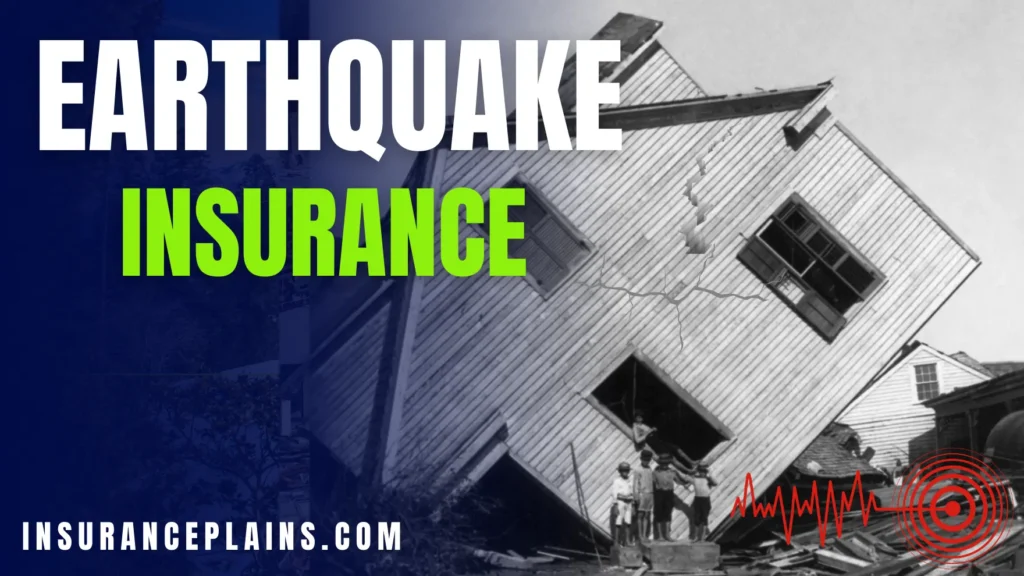
What Isn’t Included Via Earthquake Coverage?
Like every coverage regulation, earthquake coverage has exclusions. Here’s a examination of a few not-unusual things it received its cover:
1. Automobiles
Harm to cars resulting from an earthquake isn’t always protected under earthquake insurance. For this, you’d need to rely on your car coverage policy, which may additionally include insurance for herbal screw-ups.
2. Flood Harm
Even supposing an earthquake triggers a flood, earthquake coverage will no longer cover any flood-related damage. For this, you’d need separate flood coverage.
3. Pre-Existing Harm
If your private home has pre-present harm or structural problems that might be made worse by way of an earthquake, the issues may not be protected by way of your coverage.
Cost Of Earthquake Insurance
How much does earthquake insurance cost?
The value of earthquake coverage can vary greatly depending on various things. On average, premiums vary from $300 to $1,000 in 12 months, but they may be a good deal higher in excessive-hazard areas like California.
Factors Affecting Earthquake Insurance Premiums
Numerous key elements determine the value of earthquake insurance, along with:
1. Place
If you stay in an excessively chanced place, such as along a prime fault line, you can expect to pay notably more for earthquake insurance than a person in a low-danger region.
2. Domestic production
The materials and design of your home additionally impact the price. Homes built with timber generally tend to fare better in earthquakes than masonry homes, so they may price much less to insure.
3. Deductibles
Earthquake insurance deductibles are commonly a whole lot higher than the ones for popular house owners insurance—regularly ranging from 10% to 20% of your house’s insured cost. Deciding on a better deductible can decrease your rates, however it means paying more out of pocket after a quake.
How To Select The Proper Earthquake Coverage Insurance
Key considerations whilst deciding on coverage
When choosing an earthquake coverage policy, recall the following:
Insurance limits: also make sure that the policy you select will pay for the cost of rebuilding your private home and replacing private property.
Deductibles: depending on how you organize your insurance, this also depends on the deductible that you choose since it may lower the amount of money paid after a declaration.
Exclusions: read the policy in detail to gain an insight into what is allowed and what is prohibited.
Earthquake Coverage For Renters Vs. House Owners
Differences In Insurance
Even as homeowners want earthquake coverage to cover the structure in their houses, renters want insurance for their non-public belongings. Renters’ earthquake coverage is typically greater affordable because it best covers the contents of the rental unit, not the construction itself.
Pinnacle Earthquake Insurance Providers In 2024
In case you’re shopping for earthquake coverage, take into account these pinnacle companies:
1. State Farm
Kingdom Farm offers an expansion of customizable earthquake insurance regulations and is understood for its great customer service.
2. Allstate
Allstate provides comprehensive earthquake coverage with bendy deductible options, making it an excellent preference for those in excessive-risk regions.
3. USAA
USAA is an awesome option for military families, providing low-cost earthquake insurance plans with a focal point on reliability and customer support.
The Way To Document An Earthquake Insurance Claim
Step-by way of-step manual
Submitting an earthquake coverage declaration can seem overwhelming, however following those steps can make the system smoother:
File the harm: take photos and motion pictures of all seen harm without delay after the earthquake.
Contact your insurer: notify your coverage company as quickly as feasible to start the claims method.
Hold particular statistics: keep receipts for any temporary maintenance or extra residing charges you incur while looking ahead to the declaration to be processed.
Meet with an adjuster: the coverage employer will send an adjuster to assess the harm before your claim is authorized.
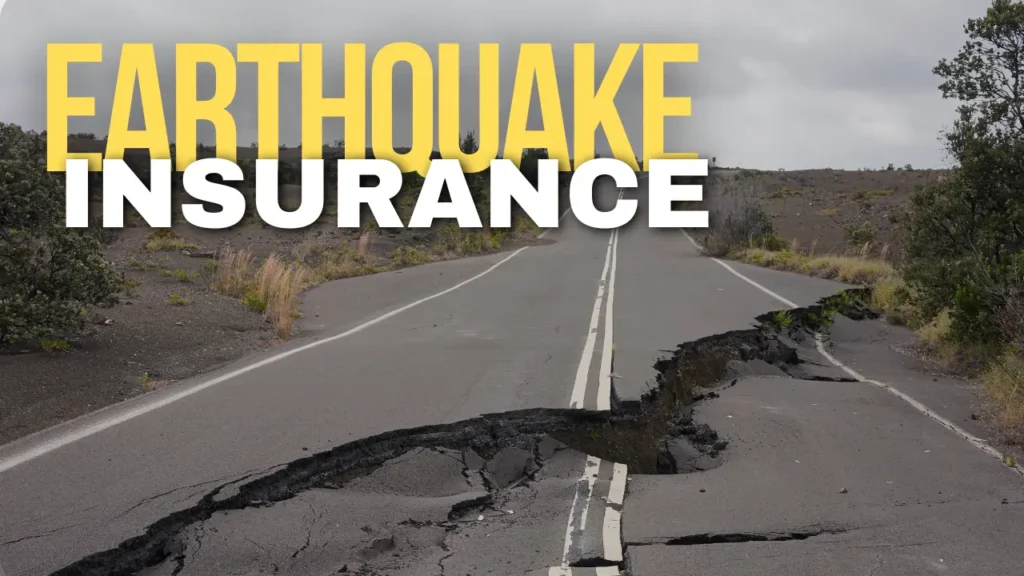
Steps To Put Together For An Earthquake
Despite insurance, training is fundamental to minimizing damage. Do not forget to take the following steps:
1. Retrofit Your Own Home
Strengthening your property’s foundation and securing heavy furniture can reduce the hazard of substantial harm for the duration of an earthquake.
2. Create An Emergency Kit
An emergency kit, with food, water, first aid substances, and flashlights for times when you do not have electricity or other utilities after an earthquake should be assembled.
Common misconceptions approximately earthquake coverage
1. “Owners Coverage Covers Earthquakes”
Many people mistakenly accept as true that their ordinary owners’ coverage covers earthquakes, however this isn’t the case.
2. The Handiest California Wishes Is Earthquake Insurance.
Although we all associate California with earthquakes, other states, such as Alaska, Missouri, and South Carolina are not shielded from this danger either.
Is Earthquake Insurance Well Worth It?
Considerations of the advantages and disadvantages
Whether or not one should purchase earthquake insurance depends on the risk degree as well as your financial status. Suppose you live in a high-risk area, the cost of repairing the losses that were caused by an earthquake in that particular area if you have no insurance is a taboo. Even when the threat level is low, having earthquake insurance is a peace of mind knowing your home is protected and your property.
Conclusion
Earthquake coverage is critical attention for house owners in areas liable to seismic pastime. It can cover the price of repairing your property, replacing personal assets, and overlaying extra dwelling fees. Whilst it can look like a delivered rate, the financial protection it offers within the aftermath of a quake is worthwhile. Make certain you recognize your coverage, realize what’s covered, and take steps to put together your home before disaster strikes.
FAQs
No, if homeowners insurance is general or widespread it does not cover earthquake losses. You want a separate flood, flood recovery, or liberal sensual coverage policy.
It’s possible to get rates as low as $300 or $1,000 or above depending on the year, location, the style of your house, and your choice of deductible.
Yes, deductibles for earthquake coverage are typically higher than those for distinct types of coverage and normally vary from 10% to twenty% of your own home’s insured fee.
Excessive-danger regions in the U.S. Include California, Washington, Alaska, and additives of the Midwest and East Coast.
After making sure that you’re protected, file all damages, contact your insurers, and maintain records of all costs relating to the earthquake.
